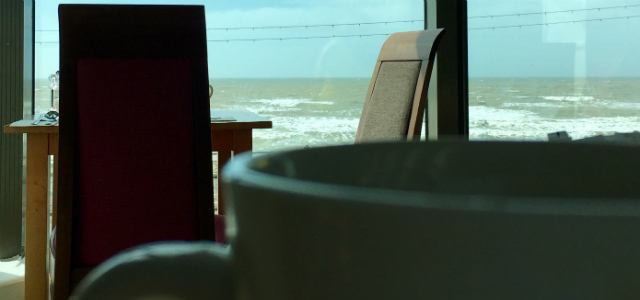 As I sit for breakfast, overlooking the sea at this hotel in Brighton (Southern England), I look out towards the turbulent waves hitting the pebbly shore and reconnect with my mum’s love of the ocean.
As I sit for breakfast, overlooking the sea at this hotel in Brighton (Southern England), I look out towards the turbulent waves hitting the pebbly shore and reconnect with my mum’s love of the ocean.
Mum grew up in Mombasa, a relaxing coastal town in East Africa. It’s where she had studied, formed close friendships and first met my dad. My brother and I, as we grew up, would hear stories of the infamous “lighthouse” where all the youth would gather outdoors in the evenings to hang out, for music and hot food – makai (corn on the cob), mogo (cassava) and chips, not forgetting madaf nu pani (coconut water) and perhaps other drinks they never told me about.
We’d had a number of beach holidays together over the years, with our last family holiday together in Aruba, just after I graduated from uni – again close to the water. When I attended a conference near Lago Maggiore in Italy and had sat by the lake on a beautiful June afternoon in 2005, I had vowed to take mum there so she too could enjoy a cappuccino overlooking the lake – but I never got round to taking her there. Now that I can, it’s of course too late.
This September will mark 10 years since mum died. A few weeks after she passed away, most of the family, including my maternal grandmother, had made the day trip to Brighton to scatter mum’s ashes, somewhere along the coastline that I’m overlooking right now.
If mum was here, staying at the same hotel, staying in the same part of the hotel (facing north so not overlooking the sea), I feel I would have upgraded her room to enjoy the sea view from her room. Even with limited mobility, at least she could have enjoyed that. Then I would have brought her down for breakfast to enjoy the sea view from the hotel restaurant. We would have had far too many mugs of tea together, making the most of the unlimited refills!
But sadly she is no longer around and these gestures no matter how grand or small, cannot come to fruition. This makes my eyes well-up realising the futility of my wishes for mum and I to have any more of those experiences together.
On this bright spring morning, as I finish my second mug of tea while overlooking the turbulent waves crashing against the pebbly Brighton shore, my heart is filled with sadness and regret.
While it’s been almost a decade since mum died, these feelings of regret are surfacing only now. I realise too, that while there’s nothing I can do to make up for all that’s left undone, it’s certainly within my reach to simply observe what’s coming up and let it pass in it’s own natural time, in it’s own natural way.
I have a choice now to either get bashed about by the rough waters or to upgrade to the sea view and calmly observe whatever comes up. Like each wave along Brighton’s coast that builds up momentum and gradually comes to rest, even these turbulent feelings will comes to pass.